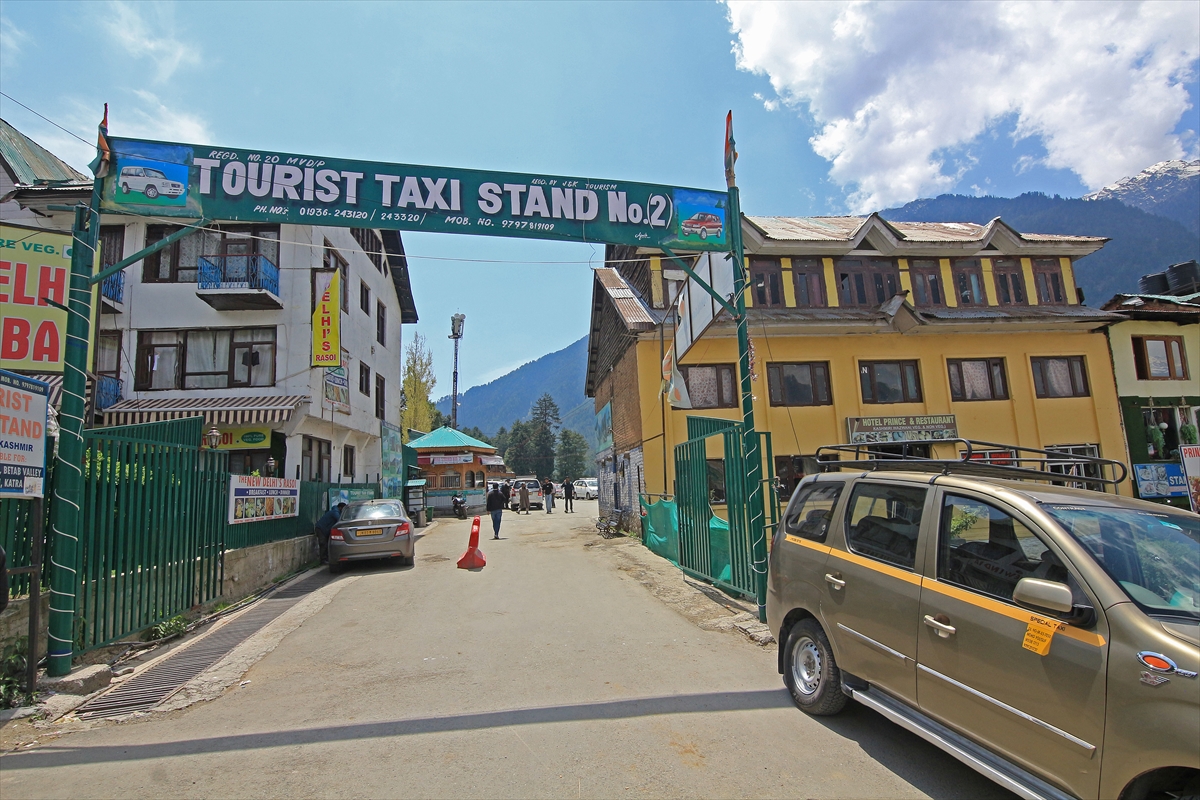
By Elham Asaad Buaras
(The Muslim News): The World Kashmir Awareness Forum (WKAF) has joined Pakistan in calling for an independent international investigation into the terrorist attack on tourists in Pahalgam, Indian-occupied Jammu and Kashmir, which occurred on Tuesday.
Condemning the attack as a “heinous crime against innocent civilians”, WKAF raised serious questions about how such violence could occur in one of the world’s most heavily militarised regions.
Pahalgam, like much of Kashmir, is under constant Indian surveillance, with checkpoints, patrols, and intelligence operations saturating the area. As WKAF stated, “The reality of intense military control throughout Occupied Kashmir raises serious doubts about the true nature of this incident.”
While Indian media quickly attributed the attack to The Resistance Front (TRF), a little-known militant group, WKAF pointed to inconsistencies in the claim of responsibility, highlighting the absence of key markers such as an official logo or detailed operational statements. Even the BBC has questioned the authenticity of the claim. Despite these discrepancies, the Modi government has continued to promote its narrative without addressing these concerns.
In the aftermath of the massacre, WKAF reported widespread repression against Kashmiris, with over 1,500 individuals reportedly detained. However, the Forum believes the true number is likely higher, obscured by bureaucratic opacity. Kashmiris studying across India have faced harassment, with many forced to abandon their studies under threat. WKAF also noted a disturbing increase in calls for violence against Kashmiris, often with little to no consequence for those inciting such hatred.
The devastating assault in Pahalgam, one of the worst attacks on civilians in years, targeted tourists in the popular Anantnag district. Of the 26 killed, most were Indian citizens, along with a Nepali national and a person of Indian origin working in the Middle East. Gunmen also injured more than a dozen others. However, the only local person killed in the terrorist attack was a Muslim pony-ride operator. 28-year-old Syed Adil Hussain Shah, was killed defending the tourists. He tried to stop the attackers firing at the tourists but was targeted by terrorists. He was a sole provider for his family.
Relations between India and Pakistan have rapidly deteriorated in the wake of the attack, heightening fears of renewed military escalation between the two nuclear-armed neighbours. Both countries claim Kashmir in full but control parts of the region and have fought three wars over it. In 2019, India launched air strikes inside Pakistan after a cross-border attack killed 40 Indian paramilitary personnel.
New Delhi swiftly blamed Pakistan for the attack, downgraded diplomatic ties, and suspended its participation in the Indus Waters Treaty, a crucial water-sharing agreement signed in 1960.
Pakistan has firmly denied any involvement in the attack, rejecting India’s accusations as politically motivated and part of a broader strategy to deflect attention from internal issues. Pakistan’s Interior Minister, Mohsin Naqvi, emphasised the country’s commitment to peace and international norms, offering full cooperation with neutral investigators. Defence Minister Khawaja Muhammad Asif also echoed the sentiment, saying that Pakistan is “ready to cooperate with any investigation conducted by international inspectors.”
Pakistan also condemned India’s suspension of the Indus Waters Treaty, calling it a reckless decision that jeopardises millions of livelihoods. The Pakistani government has issued stern warnings that any attempt by India to divert water from the Indus River would be considered an act of war. This suspension has led to heightened tensions, with both sides engaging in cross-border exchanges of fire.
“The lives of 23 million Kashmiris cannot be treated as expendable,” WKAF warned, calling for renewed international efforts to address the root causes of violence in Kashmir and for a full, independent investigation into the Pahalgam attack. The organisation rejected any inquiry led by the parties directly involved in the conflict, stressing the need for impartiality.
Pakistan has taken several retaliatory measures, including closing its airspace to Indian flights and suspending all bilateral treaties, such as the 1972 Simla Agreement. The suspension of the Indus Waters Treaty has caused panic in Pakistan, with fears that India may attempt to cut off its water supply. These escalating tensions have exacerbated the already fragile security environment in the region.
U.S. President Donald Trump acknowledged the long-standing nature of tensions between India and Pakistan, expressing cautious optimism that the two countries would eventually resolve their differences. Speaking aboard Air Force One, Trump remarked, “They’ve had that fight for a thousand years in Kashmir. There’ve been tensions on that border for 1,500 years. They’ll get it figured out one way or the other.” While he did not confirm whether he would intervene directly, Trump stated that he maintained close relationships with leaders in both India and Pakistan.
Meanwhile, United Nations spokesman Stéphane Dujarric confirmed that the UN is “paying very close attention” to the escalating situation. He expressed “very deep concern” over the violence and reiterated the UN’s condemnation of the attack, urging both governments to exercise “maximum restraint” to avoid further deterioration of the already fragile security environment.
Reports from WKAF, AA, Agencies
[Photo: A view of a deserted tourist taxi stand of Pahalgam in south Kashmir’s Anantnag district on April 26,2025 after terrorist attack. Photojournalist: Faisal Khan/AA]